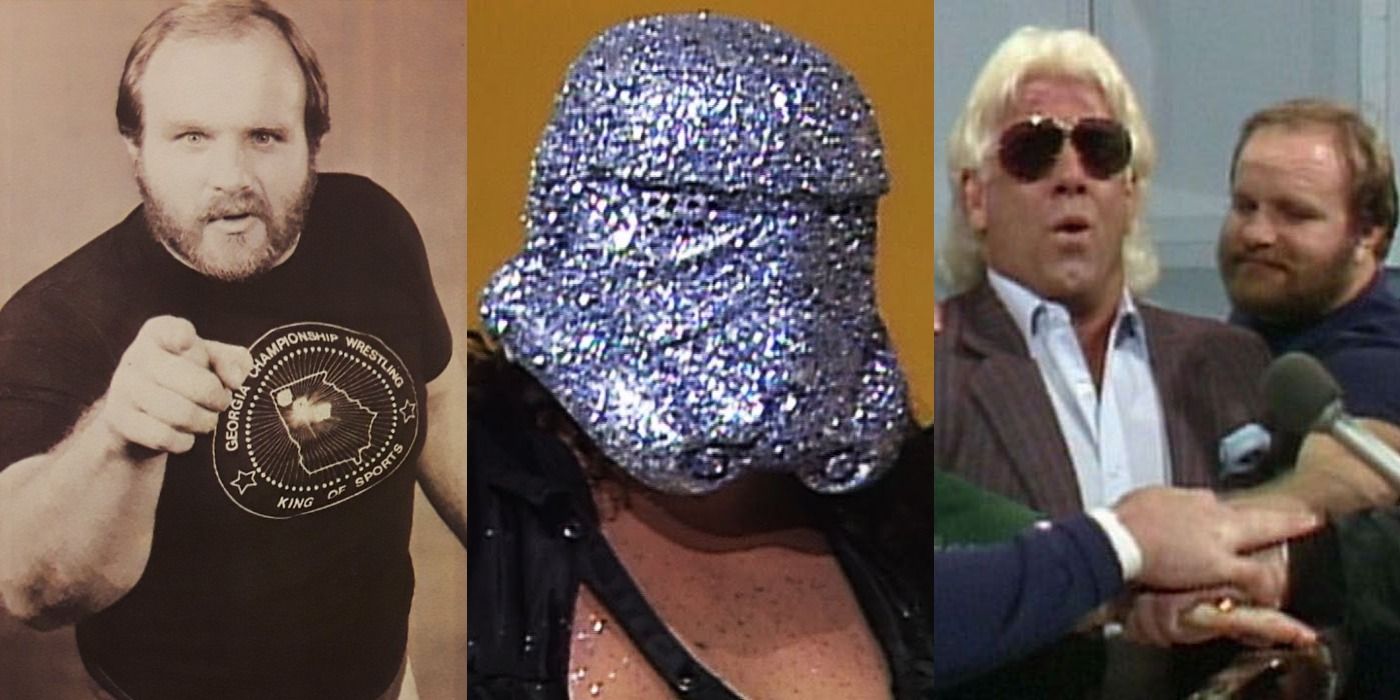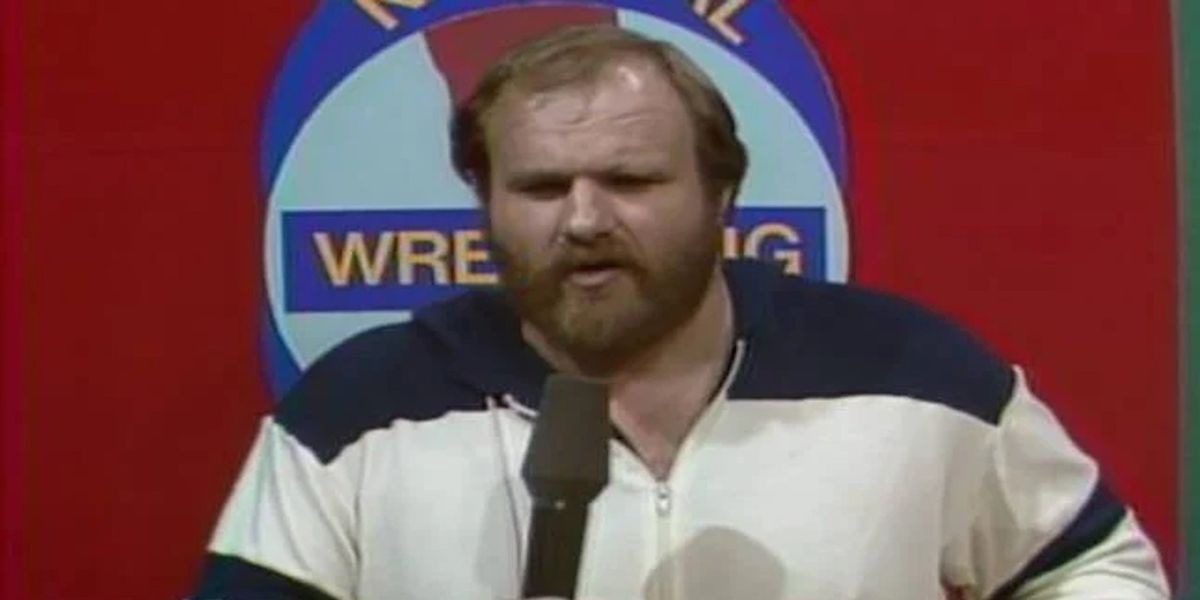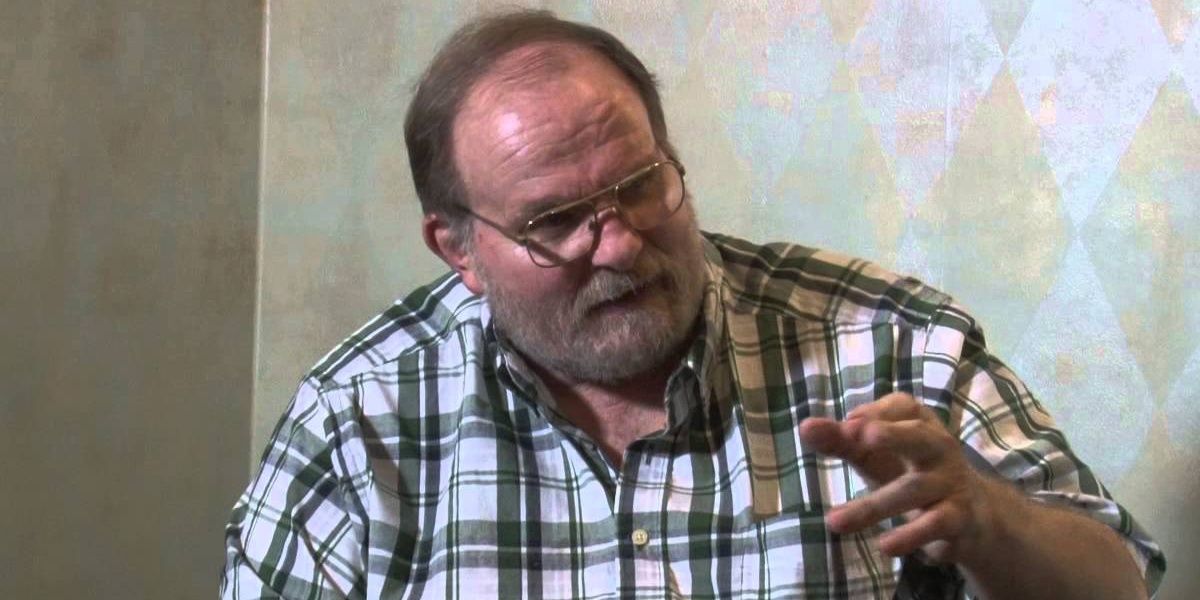Read update
- Ole Anderson was a polarizing figure to say the least. A number of his colleagues had less than complimentary things to say about him, particularly from his work in a backstage leadership role, as well as the harsh criticisms he doled out after retirement. Nonetheless, on the occasion of his passing in February 2024, it offered an occasion for deeper reflection on who Anderson was as a man and the important role he played in the history of the professional wrestling business. Like any human, he was not perfect, but it's also the case that there's a healthy respect for him in wrestling circles to balance all the grudges people held against him.
Highlights
- Ole Anderson was a controversial figure when he booked WCW; criticized high-profile talent and faced accusations of racism.
- Anderson's outdated wrestling view clashed with modern fans who enjoy the scripted nature of the sport.
- The passing of Ole Anderson offered a moment of reflection, despite his past controversies, many in wrestling spoke positively of him.
Nowadays, when fans think of Ole Anderson, they tend to leap to his kayfabe relation to Arn Anderson, or the bit of trivia that he was an original member of the Four Horsemen. Ole had a legacy all his own, though, and despite his undeniable talents in a number of areas he also offered his share of reasons not to like him, particularly for his work in a creative and management role.
UPDATE: 2024/03/02 11:30 EST BY MICHAEL CHIN
Ole Anderson was a polarizing figure to say the least. A number of his colleagues had less than complimentary things to say about him, particularly from his work in a backstage leadership role, as well as the harsh criticisms he doled out after retirement. Nonetheless, on the occasion of his passing in February 2024, it offered an occasion for deeper reflection on who Anderson was as a man and the important role he played in the history of the professional wrestling business. Like any human, he was not perfect, but it's also the case that there's a healthy respect for him in wrestling circles to balance all the grudges people held against him.
Ole Anderson Allegedly Treated Wrestlers Poorly
Ole Anderson Was A Controversial Figure When He Booked WCW
- Ole Anderson took over booking WCW in the early 1990s.
- Ole Anderson could be gruff and critical of high-profile talent, up to and including Ric Flair.
- Ole Anderson also faced accusations of racism.
Ole Anderson spent years working backstage with varying levels of power, most famously taking the lead on booking WCW for a stint in the early 1990s. Throughout this time, Anderson developed a polarizing reputation for his gruff exterior and disrespecting highly regarded talents. Anderson most notably slighted Ric Flair time and again, suggesting that the formulaic pattern to his matches meant he wasn’t actually that great of a wrestler. In a particularly infamous moment that Flair documented in his book To Be The Man, Anderson chastised Flair upon his return to WCW in 1993. The Nature Boy had lost a loser leaves WWE match to Mr. Perfect on an early episode of Monday Night Raw on his way out of that company. Anderson asked what he could possibly do with Flair after he had put over Hennig cleanly, suggesting Flair among those wrestlers who lost all credibility.
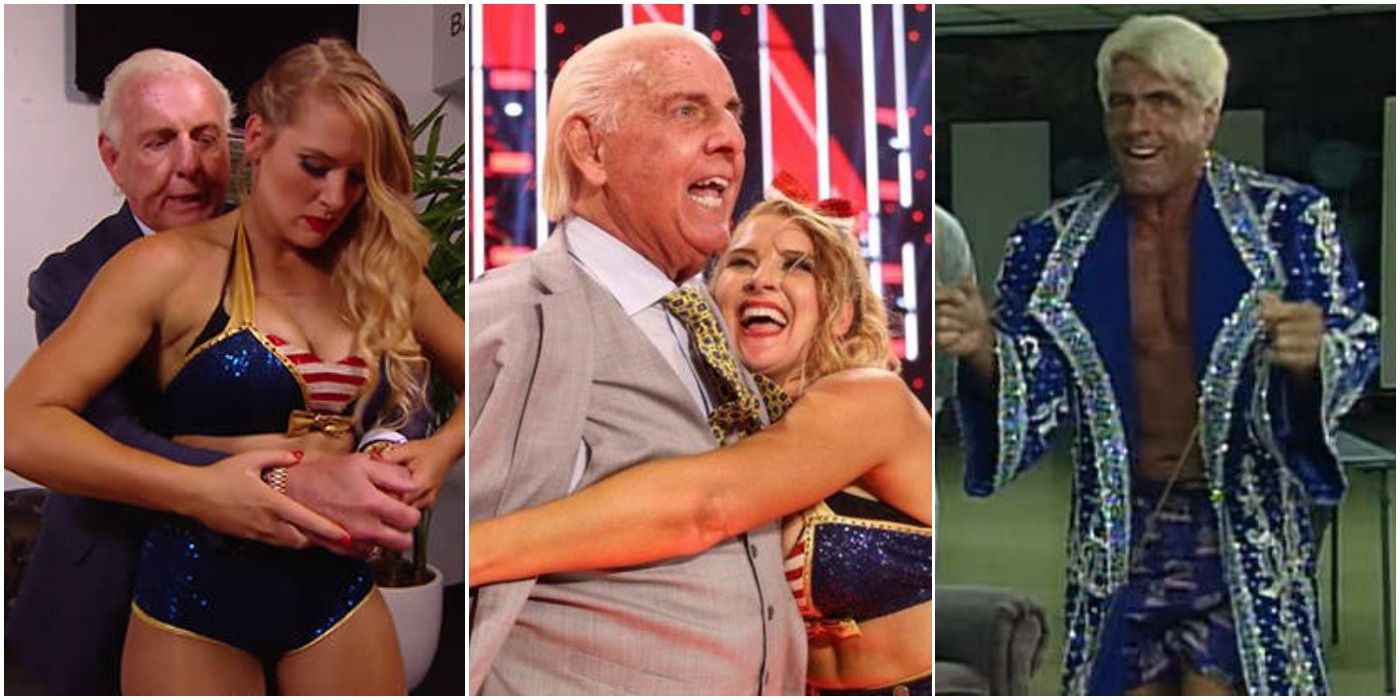
10 Weirdest Moments Of Ric Flair's Career
Ric Flair's wrestling career has spanned many decades. Knowing the Nature Boy, things are inevitable to get a little weird from time to time!Plenty of other wrestlers have voiced grievances against Anderson as well. Tito Santana spoke up on an interview with Hannibal TV, accusing Anderson of racist, demeaning remarks. Santana indicated he didn’t feel like he was in a position to stand up to Anderson at the time, but it’s clear he remembered the sense of disrespect.
Ole Anderson Was The Voice Of The Shockmaster
The Shockmaster Was One Of WCW's Most Infamous Gimmicks
- Ole Anderson was in charge of WCW Creative when The Shockmaster debuted.
- Fred Ottman's unfortunate trip immediately undermined The Shockmaster gimmick.
- Ole Anderson was on the mic to cut The Shockmaster's first promo while Ottman stood by in his helmet.
Most of Ole Anderson’s biggest on-air moments came in an era that, today, feels lost to the sands of time. He never wrestled for WWE, and his time in AWA, the NWA, and WCW were all well before the peak periods for the companies’ popularity and exposure. As such, one of the performances he’s best remembered for now is his instrumental role in the debut of The Shockmaster.
When Fred Ottman first appeared on screen, it was Ole Anderson the mic, doing the talking. That debut is infamously marred by the big man tripping over a misplaced board so that the first impression fans had of him was as a clumsy oaf. The mystique was gone when he not only fell, but his helmet tumbled from his head and he frantically grasped to put it back in place, all on live television.
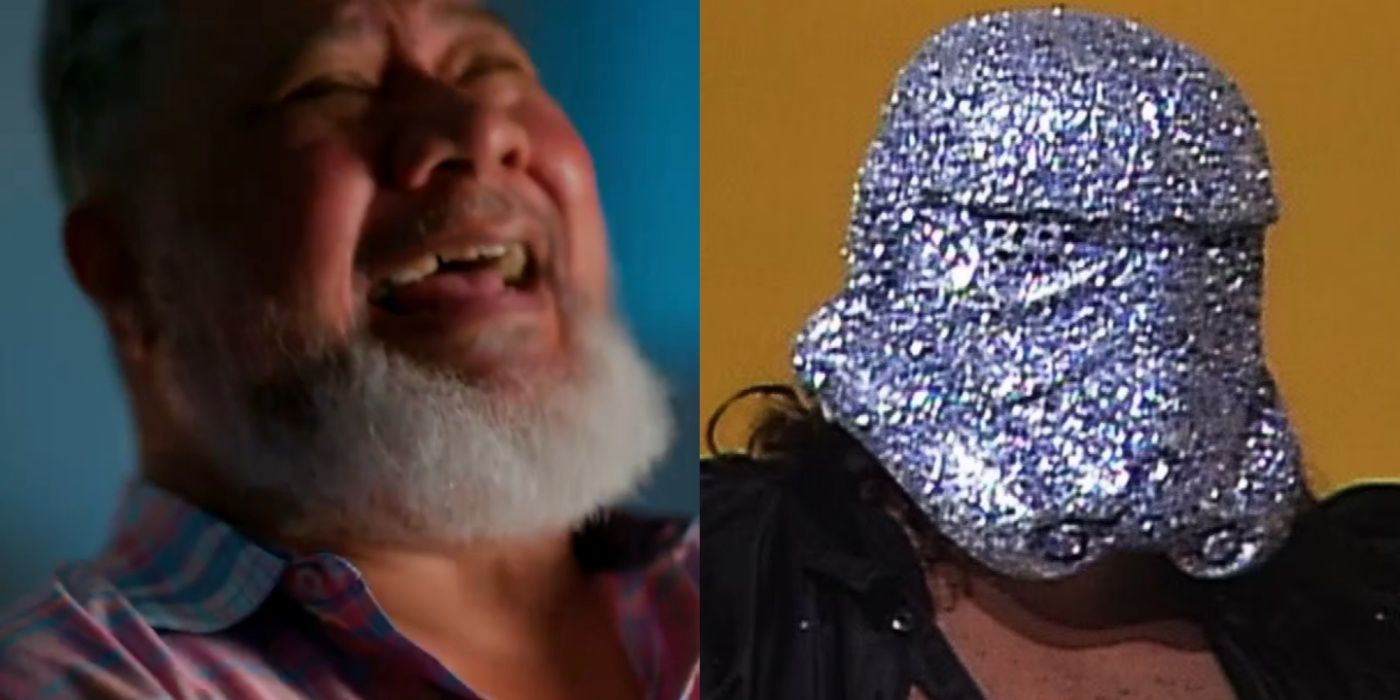
'Dark Side of the Ring' Shows Haku's Hilarious Reaction To Seeing The Shockmaster's Debut For The First Time
Haku was one of wrestling's greats, yet somehow he missed the infamous WCW debut of The Shockmaster.While this comedy of errors has become the stuff of WCW legend, there’s the less commonly cited reality that the Shockmaster concept was deeply flawed anyway. The helmet looked more like something from a home-made science fiction film than like professional costuming. The voice Anderson affected for him came across more cheesy than intimidating. The whole segment felt like a testament to Anderson being out of his depth in trying to book a more modern wrestling gimmick. The fact that he was literally the voice of The Shockmaster makes it impossible to disconnect the two.
Not Understanding The Modern Wrestling Audience
Ole Anderson's Critics Argued He Was Out Of Touch
- When Ole Anderson did media for his book, he questioned why any fan could watch wrestling if they knew it was fixed.
- Ole Anderson was part of an old guard that vehemently believed in protecting kayfabe.
- Ole Anderson seemed to be out of touch with modern fans who enjoy wrestling more because than in spite of its scripted nature.
When Ole Anderson’s book, Inside Out: How Corporate America Destroyed Professional Wrestling, came out in 2003, Anderson hit the media circuit to promote what he had written. The book’s very title and concept suggested that Anderson was a bit out of touch with the modern wrestling landscape. An interview with South Florida’s Sun-Sentinel reinforced that he simply did not understand contemporary wrestling fans.
Anderson indicated that:
“I don't understand, and never will, how anybody could possibly want to go to [a wrestling] event knowing without a doubt that it’s B.S.”
Anderson’s old-school mentality suggested a need to “protect the business” and obscure that the outcomes were predetermined. While there was a time for this way of thinking, today, knowing wrestling is fixed has become a key part of what adult fans in particular enjoy about the product. The audience takes pleasure in speculating about booking choices and behind the scenes happenings, and skilled bookers have made good use of this dynamic on screen. A promoter too attached to trying to sell wrestling as “real” truly doesn’t have much place in a position of power nowadays.
Ole Anderson Was The Forgotten Horseman
Ole Anderson Was Part Of The Original Four Horsemen Lineup
- Ole Anderson was an original Horseman alongside Ric Flair, Arn Anderson, and Tully Blanchard.
- Ole Anderson wasn't a part of Four Horsemen reunions.
- WWE opted to honor Barry Windham, rather than Ole Anderson, when they inducted The Four Horsemen into their Hall of Fame.
One of the more lasting pieces of Ole Anderson’s legacy—particularly as an on-air talent—was as part of the original Four Horsemen. Anderson’s place in that stable has largely been forgotten however, for not being a part of many of the group’s reunions, and for WWE omitting him when it inducted the group into its Hall of Fame, honoring Barry Windham instead.
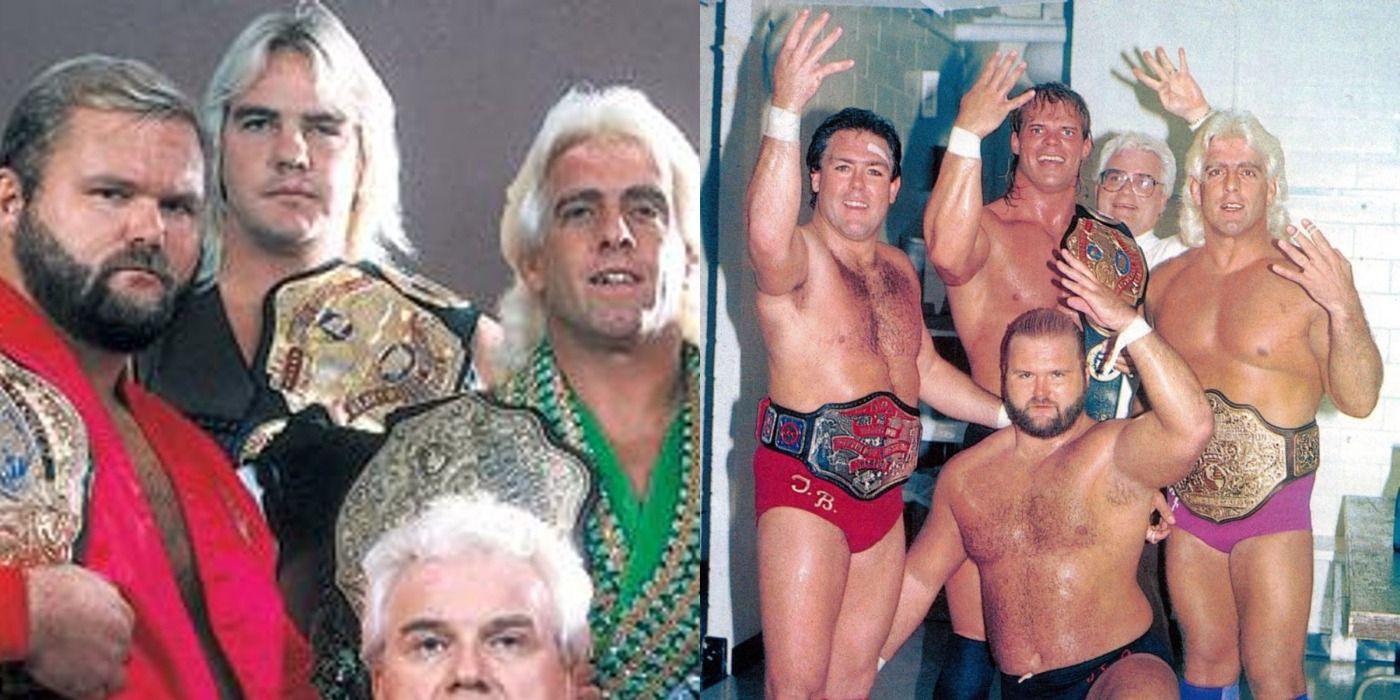
Every Version Of The Four Horsemen, Ranked From Worst To Best
The Four Horsemen is arguably the top stable in wrestling history. However, not every version was great and some were downright bad.It’s not as though Anderson has rallied that he should be remembered as a Horseman, though. He vocally condemned the group in his book and his 2004 interview with The Sun-Sentinel. Ric Flair, Arn Anderson and Tully Blanchard have each spoken to the issue—including on Arn’s own podcast and a visit to Chris Jericho’s—with the consensus that Ole wanted out of the group to focus on his family, and that bad blood only brewed since that point between Ole and WWE as well Ole and Flair. The upshot of all of this is that the point in Ole’s career people might remember him best for has become at best forgotten, and at worst a sore spot for everyone involved.
The Death Of Ole Anderson
Ole Anderson Passed On February 26, 2024
- Ole Anderson passed at the age of 81.
- No official cause of death has been announced for Ole Anderson.
- The wrestling community, including past enemies of Ole Anderson, spoke positively of him on the occasion of his passing.
On February 26, 2024, word started to make its way around the pro wrestling world that Ole Anderson had passed at the age of 81. At press time, no official word has come out publicly regarding the circumstances surrounding or cause of his death.
As is so often in the case, death offered a moment for reflection. Despite a number of figures speaking poorly of Anderson over the years, it's telling that the consensus response to his passing was much warmer. For example, when Ric Flair took to X, he credited Anderson with kickstarting his career when Flair played a cousin to the Andersons, and though he acknowledged their past disagreements, he closed his post by citing Anderson as a friend.
Ole Anderson played a significant role on air and was a power broker behind the scenes. Nonetheless, a combination of gruff, or even problematic behavior handling talents, creative choices, and his mindset have left him an unpopular figure in the history of the wrestling business.

